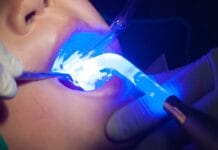Dental hygienists often spend more hours of the week working at the dental office than at home with their loved ones. With so much of our lives being spent at work, it would be best if we could all work within a healthy work environment. Although it may seem daunting to find a perfect work environment at a dental office, it is possible.
The idea of a healthy workplace has evolved from a nearly exclusive focus on occupational health and safety ‒ such as managing the physical, chemical, biological, and ergonomic hazards of the workplace ‒ to now including workplace culture, lifestyle, work organization, and community, which collaboratively can significantly impact worker health.1 Company culture is the entirety of informal and formal methods, behaviors, and values, all of which collaboratively create an experience for employees.1
Below are seven signs that you’ve found yourself in a healthy work environment.
1) You feel supported
Day in and day out, the dental hygiene profession comes with many challenges. It is a multifaceted career where a clinician must face physical, emotional, and mental obstacles throughout each workday. Due to its many challenges, it is indispensable to feel supported by the practice owner, dentist, and dental staff.
Support can be shown in many ways and have different meanings for each individual. Support can be as simple as a coworker showing interest in your life outside of work. Support may involve your boss providing positive performance reviews. If you’ve achieved your version of feeling supported, that substantiates a healthy work environment.
2) Positive communication
Healthy and positive communication among team members are essential to a healthy work environment. The ability to communicate openly with your boss and team members in a way that is free of judgment is important. It is equally important to feel confident that what you communicate to your boss and team is being heard by them.
There is no worse feeling than stressing over communicating your opinions, concerns, or suggestions relevant to work topics. This could include a conversation about a day off request or a suggestion to improve your periodontal protocols. Whatever the topic may be, if you feel that you can speak honestly among the dental team, that attests to a healthy work environment.
3) Respectful patient interactions
Much of a healthy work environment is related to how a person is treated by not only team members but patients as well. In occurrences when a patient speaks to a dental hygienist disrespectfully, it is fundamental that your dental team acknowledge it. This is an opportunity for the dental staff to provide support; sometimes, it may be necessary for a team member to intervene in the disrespectful encounter.
It is crucial that there is a standard of mutual respect among the dental staff and patients. A practice owner and/or dentist who supports their team by addressing disrespectful patient encounters rather than accommodating or ignoring the behavior provides a healthy work environment.
4) You feel valued
“Feeling valued at work is linked to better physical and mental health and higher levels of engagement, satisfaction, and motivation, leading to a healthy and productive relationship between employer and employee.”2
An employer can show they value their employees in many ways, including reiterating that their work is meaningful, providing recognition, and displaying acknowledgment of an employee’s successes. It can also be achieved as a team, such as celebrating the achievements of the office as a whole.3
5) You feel compensated
Let’s be honest; there is no worse feeling than the perception of being underpaid. It is important that dental hygienists feel as though they are valued monetarily. Kind words are appreciated, but they do not pay the ever-changing increases in the cost of living.
A recent study of health care workers suggested a positive association between monetary incentives and employee loyalty, indicating that an increase in monetary incentives increases the motivation level of the employees and makes them loyal to their organization.4 This could include fair hourly pay, bonus incentives, benefits packages, and paid time off.
6) You feel motivated
Feeling driven and motivated on a daily basis can be difficult. As we all know, dental hygiene is a profession with a high burnout rate. If your dental office provides professional development and learning opportunities, it can assist in combating those feelings of burnout and reignite a sense of purpose.
Providing learning opportunities can demonstrate an investment in you as an individual and as a team member. This could include opportunities for continuing education, seminars, and dental conferences.
7) Your health matters
Your employer should consider your physical, mental, and emotional health. It is also important to continually self-evaluate your current physical, mental, and emotional health. Your employer can demonstrate that your physical health matters by providing you with the appropriate equipment that is advantageous for your physical health. Some examples include being provided a saddle stool as well as new instruments when needed to decrease your risk against musculoskeletal disorders.
A growing awareness of mental and emotional health is essential to overall health. One study found that the most common triggers for feeling stressed as a clinical dental hygienist was a lack of sufficient patient care time, demanding needs of patients, work schedules, physical and musculoskeletal pain, and difficulty maintaining a balance between work and personal life.5 Although each individual differs in ways to relieve their personal stressors, there are ways an office can help promote mental health, such as encouraging a healthy work-life balance.
In Closing
These seven signs can guide an effort to create a healthier work environment. It is essential to consider the workplace culture, lifestyle, work organization, and community, which collaboratively can significantly impact worker health. With so much of life being spent at work, it is imperative to prioritize our health and happiness.
Before you leave, check out the Today’s RDH self-study CE courses. All courses are peer-reviewed and non-sponsored to focus solely on high-quality education. Click here now.
Listen to the Today’s RDH Dental Hygiene Podcast Below:
References
- Burton, J. (2010). WHO Healthy Workplace Framework and Model: Background and Supporting Literature and Practices.World Health Organization. https://apps.who.int/iris/bitstream/handle/10665/113144/9789241500241_eng.pdf
- Lute, J. (n.d.). Company Culture – Meaning, Benefits and Strategies. Great Place To Work. https://www.greatplacetowork.com/resources/blog/company-culture-meaning-benefits-and-strategies
- Cande, S. (2022, March 7). Why Being Valued at Work Matters. LinkedIn. https://www.linkedin.com/pulse/why-being-valued-work-matters-sam-cande
- Khan, M., Daniyal, M., Ashraf, M.Z. The Relationship between Monetary Incentives and Job Performance: Mediating Role of Employee Loyalty. International Journal of Multidisciplinary and Current Educational Research. 2020; 2(6): 12-21. https://www.ijmcer.com/wp-content/uploads/2020/11/IJMCER_B026012020.pdf
- Barnard, S.A., Alexander, B.A., Lockett, A.K., et al. Mental Health and Self-Care Practices Among Dental Hygienists. Journal of Dental Hygiene. 2020; 94(4): 22-28. https://jdh.adha.org/content/94/4/22












